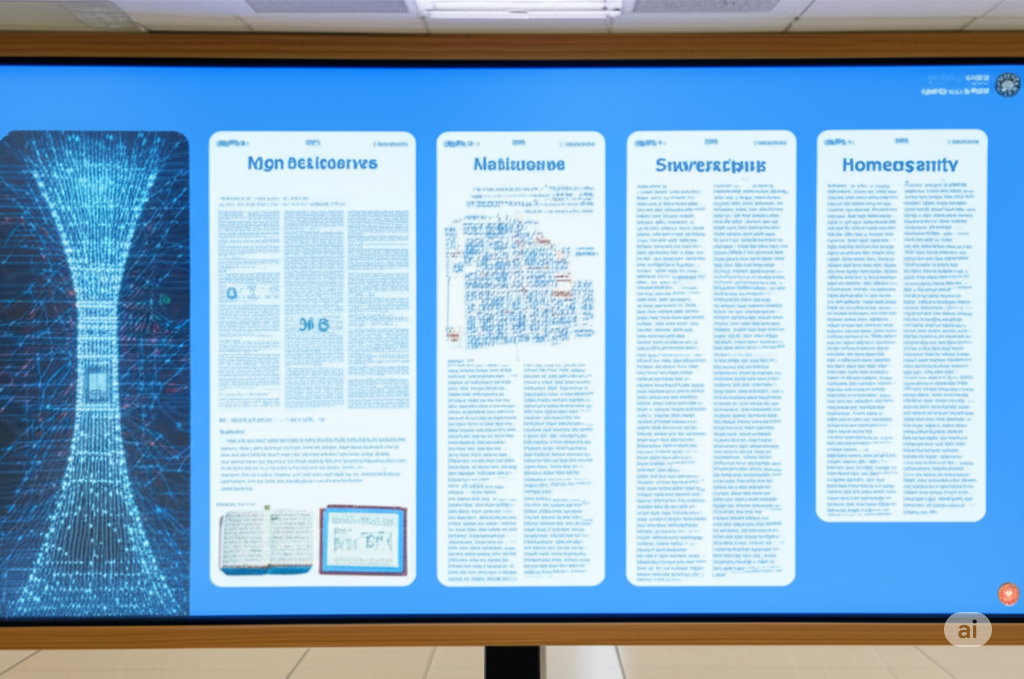India, with its millennia-old heritage, stands at the crossroads of future medicine. In a landmark step, the country is weaving artificial intelligence (AI) into its rich traditions through the launch of the Traditional Knowledge Digital Library (TKDL)—the world’s first digital archive to comprehensively document the medical wisdom of Ayurveda, Siddha, Unani, Sowa‑Rigpa, and Homeopathy. This bold fusion safeguards India’s legacy, strengthens research, and paves the way for personalized and global healthcare innovation.
Why the TKDL Matters: Preserving Heritage, Empowering Science
For centuries, India’s traditional medicines have offered holistic healing—treating mind, body, and spirit. Yet, these time-tested remedies were scattered across ancient manuscripts, orally transmitted texts, and folk practices, leaving them vulnerable to misappropriation and underutilization.
The TKDL Solution
The Traditional Knowledge Digital Library, launched by the Government of India, is a vast digital database that meticulously records formulas, therapies, medicinal plants, and treatment protocols across Indian traditional medicine systems. Making this even more powerful is the integration of AI-driven tools for search, curation, research, and global accessibility.
Features:
- Over 400,000 formulations translated into multiple languages.
- AI-powered classification, semantic search, and cross-linking of medical terms.
- Secure access for global patent offices, researchers, and policymakers.
- Ongoing expansion to encompass new discoveries and community knowledge.
How AI Transforms Traditional Medicine
Digitization alone doesn’t unlock the full potential—AI gives India an edge by turning the archive into a living, searchable, and actionable trove.
Advanced Applications
- Semantic Search & Knowledge Discovery
AI algorithms decode complex traditional concepts, linking ancient plant names, therapeutic uses, and health outcomes in seconds. - Personalized Medicine
Machine learning models analyze individual health profiles to recommend personalized regimens, harnessing the deep logic within traditional systems. - Accelerated Research & Innovation
Pharmaceutical companies and scientists can rapidly screen natural compounds or combinations for biomedical research and drug discovery. - Global Safeguarding & Legal Protection
AI flags new patent applications that might misuse India’s medicinal heritage, preventing biopiracy. - Epidemiology & Modern Diagnostics
By integrating TKDL datasets with modern health records, public health models can track the effectiveness of traditional therapies on chronic or emerging diseases.
A World-First: India’s Global Leadership
Bridging Past and Future
India is the first country to digitize and AI-enable its traditional medical systems on such a scale, ensuring:
- Protection against international patent “biopiracy”—as seen in the infamous cases of haldi (turmeric) and neem.
- Documentation and recognition of local healers’ wisdom for the world stage.
- New international research partnerships (WHO, WIPO, global universities, health startups).
Big Data in Traditional Health
More than just a library, the AI-powered TKDL supports:
- Drug discovery pipelines
- AI analysis for polyherbal formulations
- Mapping therapeutic trends in populations
- Bridging folk knowledge and modern clinical trials
Impacts on Modern Medicine & Global Health
- For Patients: AI-powered, personalized medicine recommendations; safer integration of traditional medicine in daily healthcare; better awareness of efficacy and contraindications.
- For Researchers: Streamlined access to a vast trove of validated treatments and medicinal plant data to drive innovation in pharmaceuticals and wellness.
- For India and the World: Leadership in evidence-based Ayurveda, Siddha, Unani, Sowa‑Rigpa, and Homeopathy; boosting the credibility and value of traditional medicine worldwide.
Challenges and Cautions
While the integration of AI and traditional knowledge is transformative, it brings challenges:
- Data Privacy: Sensitive health details and indigenous formulations must be managed with strict ethical standards.
- Algorithmic Bias: Ensuring AI respects traditional contexts, languages, and values while avoiding westernization or loss of nuance.
- Clinical Validation: Continued research is essential to scientifically validate ancient remedies in modern settings.
Conclusion: Weaving Ancient Wisdom into Tomorrow’s Medicine
India’s AI-enabled Traditional Knowledge Digital Library is more than digitization—it’s a testament to the nation’s vision in honoring its roots while shaping the future of healthcare. By using cutting-edge AI, India has turned cherished ancient texts into actionable medical knowledge, bridging gaps between communities, cultures, and continents. The world now has an unprecedented, secure, and collaborative resource for research, innovation, and wellness. As global healthcare grapples with chronic diseases, lifestyle ailments, and new epidemics, India’s model offers both inspiration and a practical blueprint for making ancient wisdom relevant—and powerful—in the modern age.









+ There are no comments
Add yours